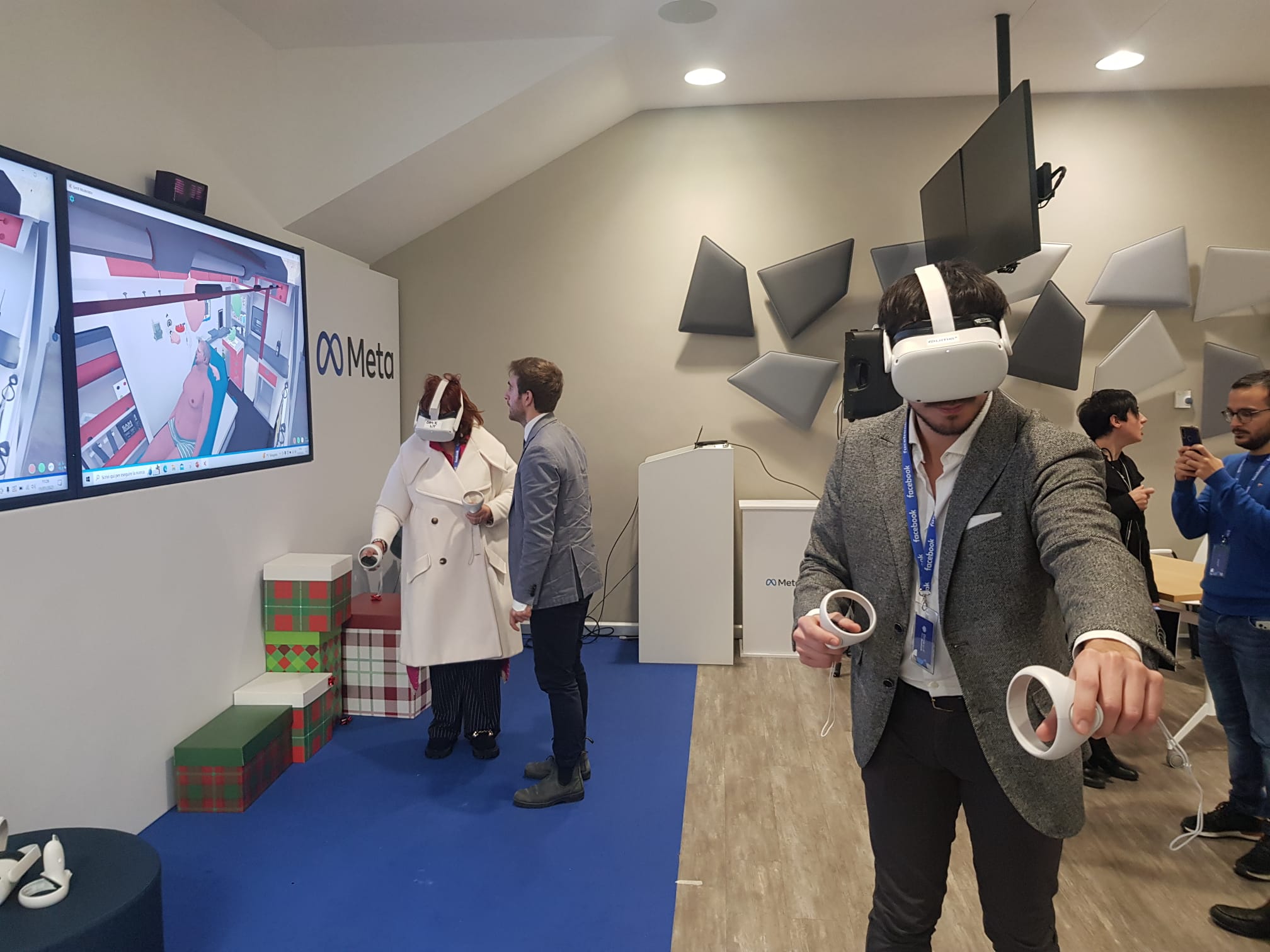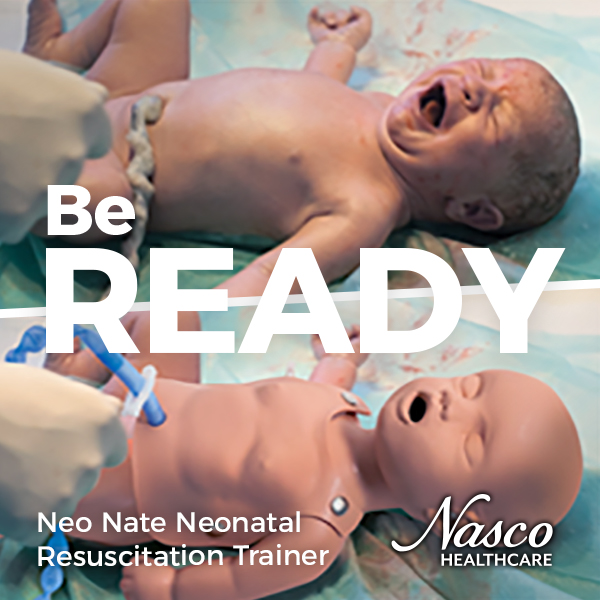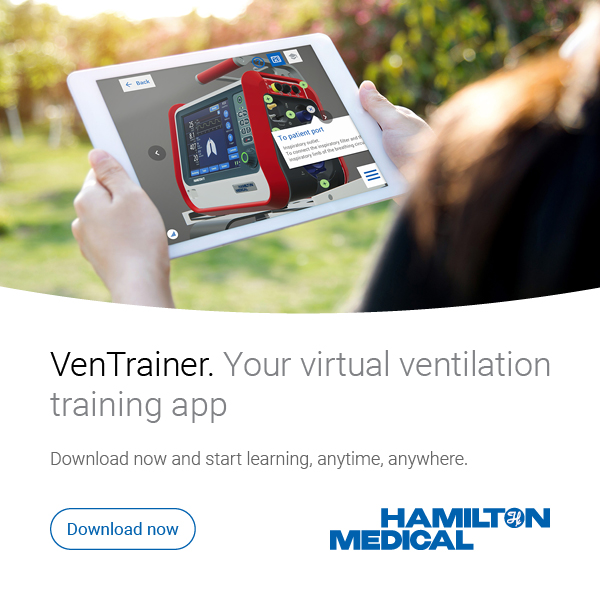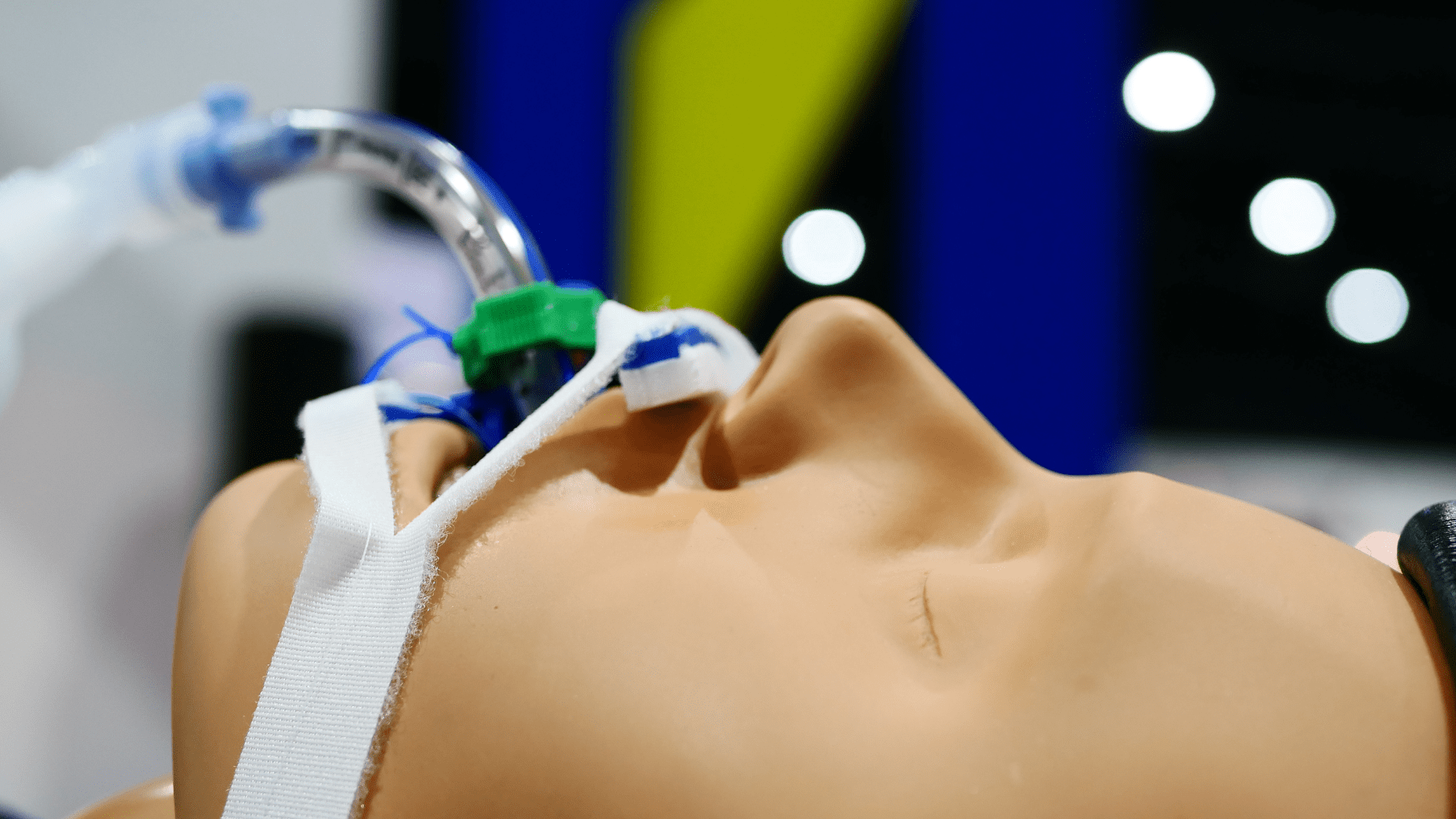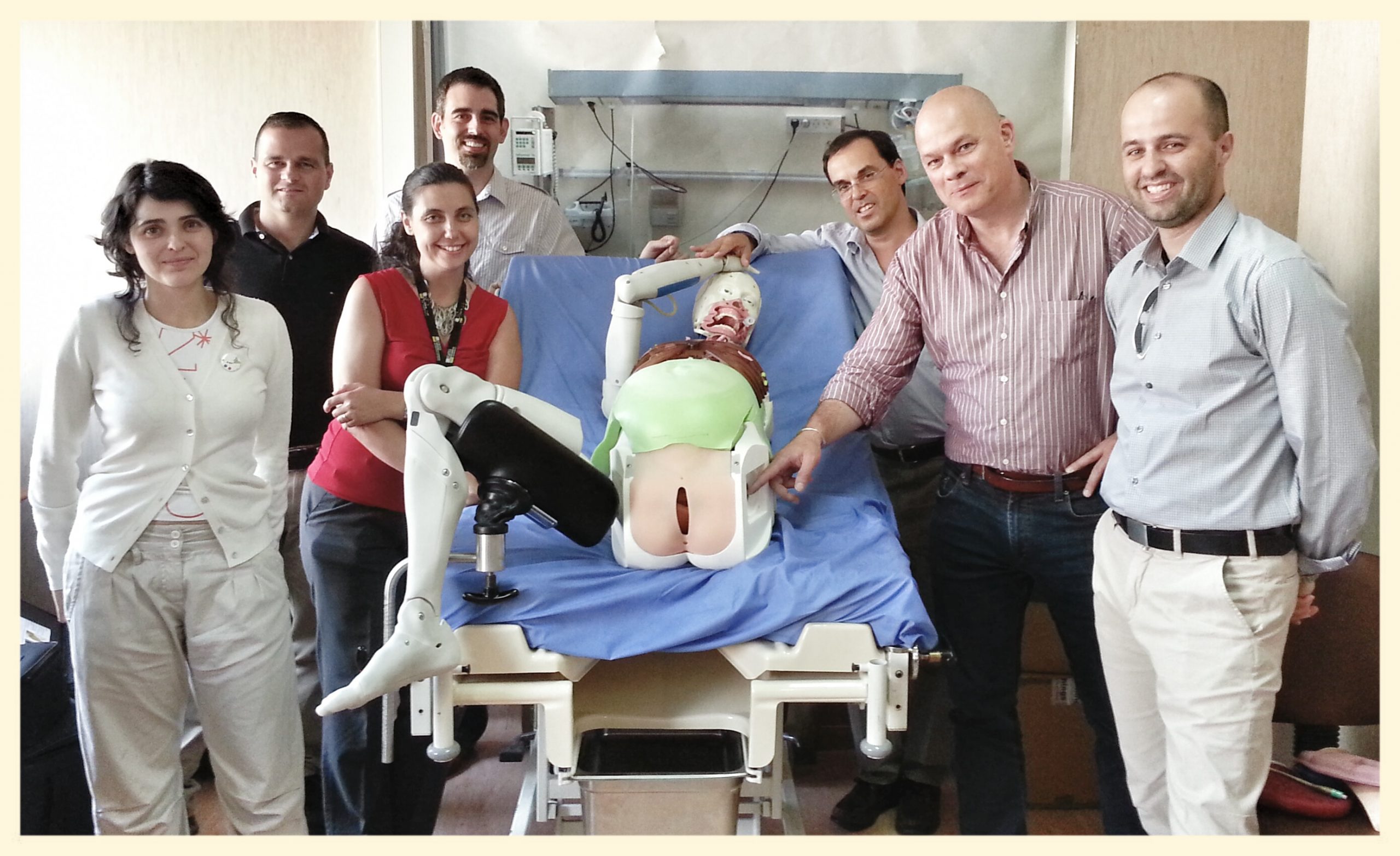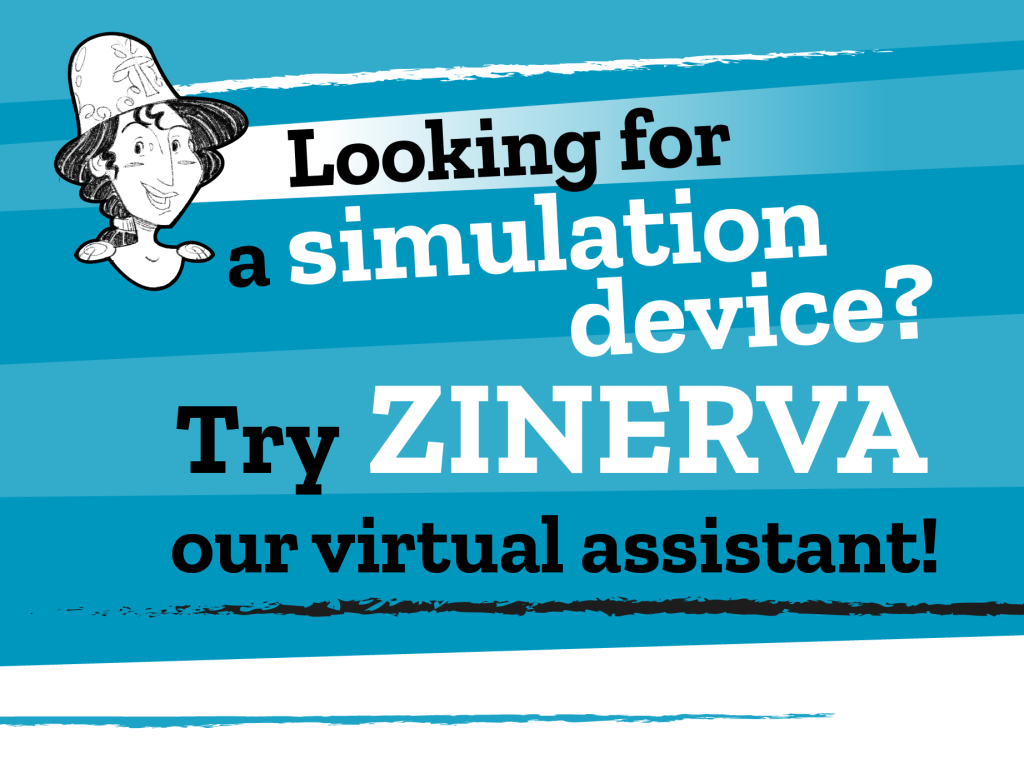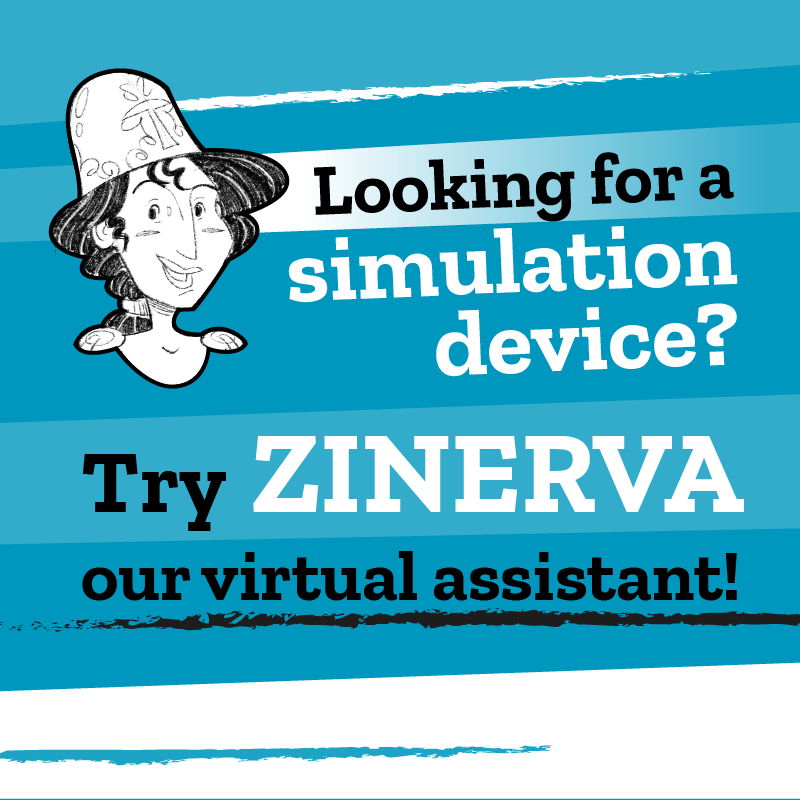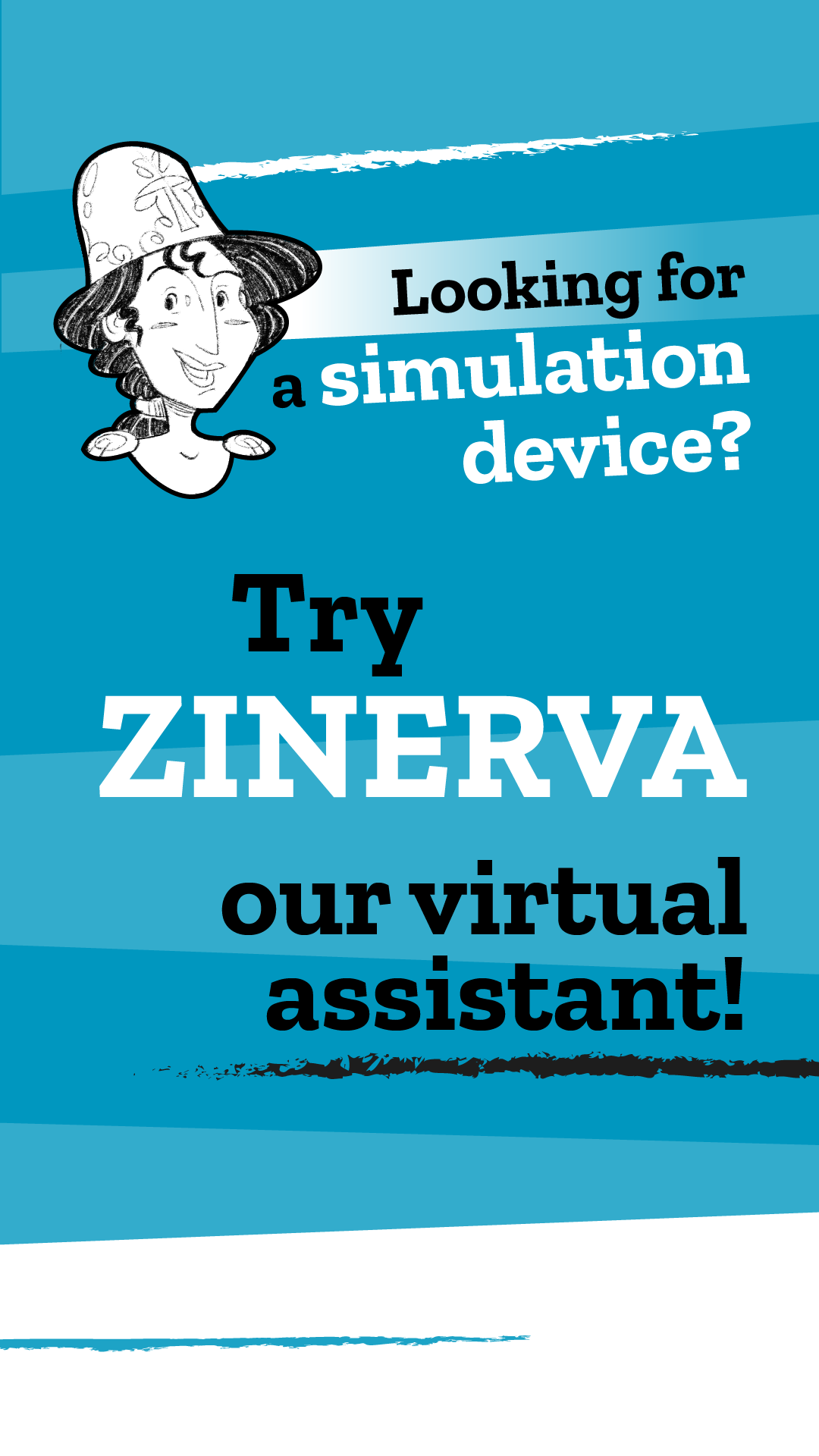Chronicle of the meetings dedicated to the Metaverse for medical training, organized by Meta, SIMM, SIMMED and Fondazione Mondo Digitale
Inside Binario F, a space dedicated to innovation and created by Meta for the training and development of digital skills, the future of many professions is being forged, through a cycle of meetings organized by Fondazione Mondo Digitale to explore the Metaverse in areas such as fashion, art, sport… and healthcare. On January 11th and February 22nd 2023 together with the Italian Society of Simulation in Medicine (SIMMED) and the Italian Society of Leadership and Management in Medicine (SIMM) the role of virtual reality in healthcare training was discussed.
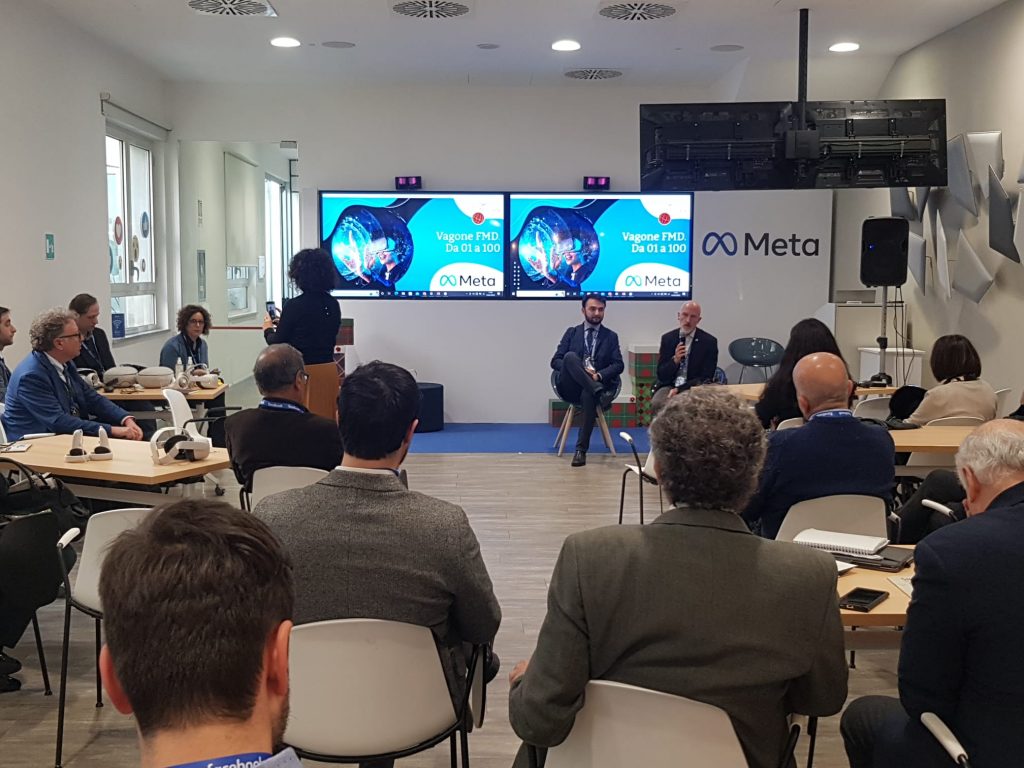
The Metaverse has opened new horizons for the scientific and medical sectors: suddenly, it has become possible to run effective training remotely, by carrying out simulations in immersive and interactive environments, in which healthcare personnel can acquire new knowledge and procedural skills with zero risk for patients.
All this leads to the speed, precision and quality of care; improvement of the hospital organization; resource optimization (clinical simulation in the Metaverse is more accessible and less expensive than the traditional one); and to greater safety for patients, clinicians and nurses.
The academic and business worlds, healthcare professionals and trade associations such as SIMM and SIMMED gathered at Binario F to answer a fundamental question: does it make sense to talk about the ‘Mediverse’?
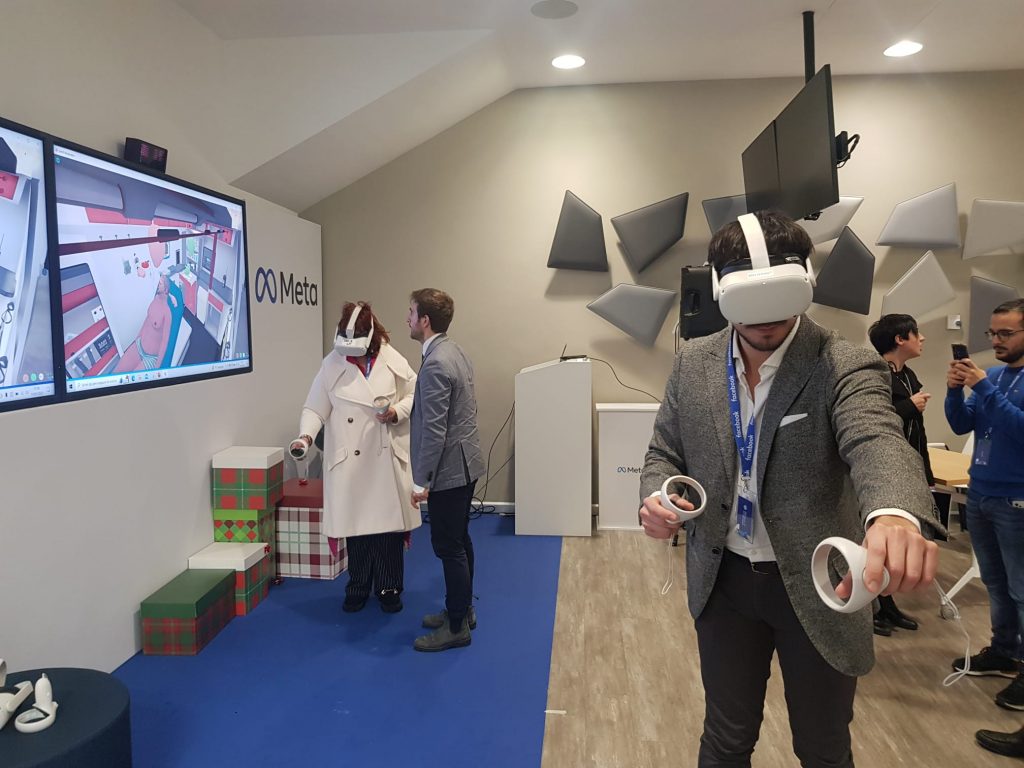
Innovative technologies such as virtual reality, augmented reality and artificial intelligence have multiple applications in the medical field, from the development of ‘digital twins’ to test new models of care, to the management of ‘virtual hospitals’ capable of replicating in every way the activities of a polyclinic. But how far are we from realizing all this on a large scale? What are the limits and challenges that we must overcome to realize the promises of the Metaverse?
During the meetings, the speakers’ presentations focussed on the level of realism afforded by the main VR softwares available and how work is already being done to allow operators to have sensory feedback; which legislative and regulatory aspects need to be considered in Italy to support the diffusion of virtual simulation in healthcare facilities; what skills it is important to acquire so that the ‘digital divide‘ is no longer an obstacle to the expression of all the potential offered by the Metaverse.
Prof. Pier Luigi Ingrassia, President of SIMMED and coordinator of the Technical Table of the Ministry of Health on simulation in healthcare, opened these two days of exchange and debate: «The digital landscape offers incredible opportunities to create learning experiences capable of involving and motivating students and professionals» he commented.
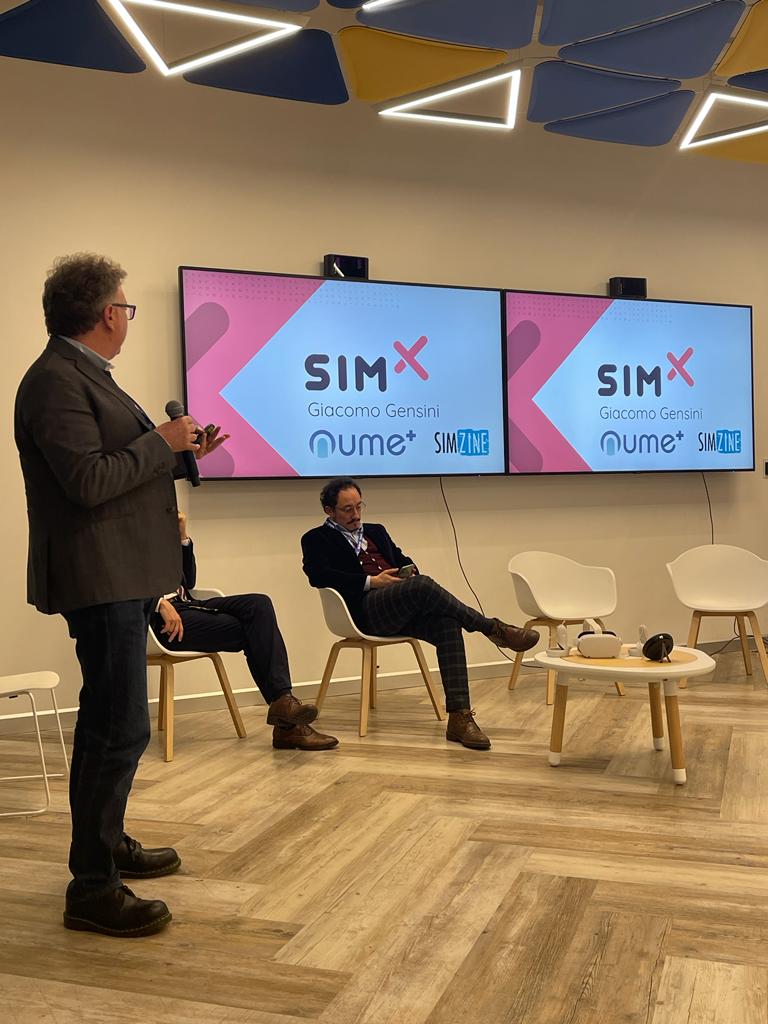
Participants also had the opportunity to test virtual training scenarios through the SimX application, a cutting-edge medical simulation software that allows multiplayer interactions and the development of customized scenarios. Used by more than 400 institutions worldwide, it was presented as a preview for Italy by Giacomo Gensini, CEO of Nume Plus, a company specializing in healthcare training through innovative technological solutions. Guided by the Nume Plus team, those present were able to wear an Oculus headset and enter virtual reality to manage a specific clinical case.
Dr. Luca Carenzo, member of the SIMMED board of directors and doctor of the Department of Anesthesia and Intensive Care at the Humanitas Research Hospital, reiterated how the lemma ‘never the first time on the patient’ is always at the center of the Society’s activities, emphasizing that the Metaverse can greatly facilitate clinical training and that numerous Italian simulation centers are already experimenting with virtual teaching methods.
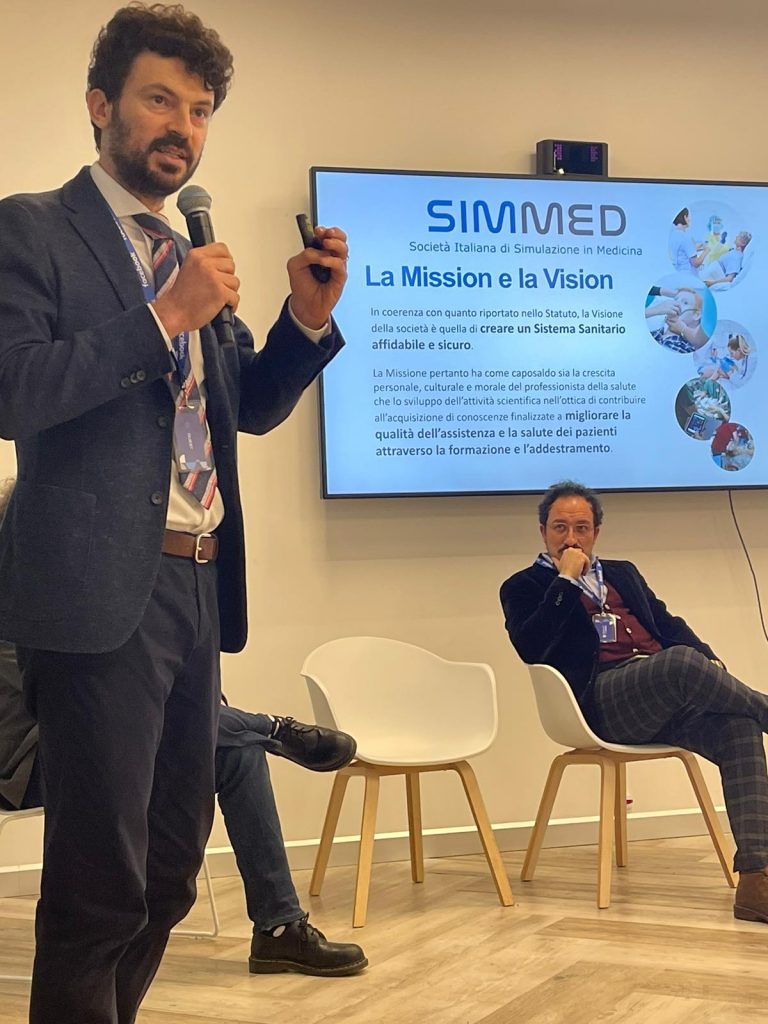
At the end of each meeting, a debate took place among the participants, from which further points of reflection emerged, such as the issue of privacy on clinical data; the importance of having platforms that allowinteroperability and that communicate with each other; the psychological implications on patients and professionals; the management of funding from the NRRP to reform healthcare according to these new guidelines.
As stated by Andrea Silenzi, medical director and member of the General Directorate of Health Prevention of the Ministry of Health, we are in a moment of rupture: the Metaverse in healthcare can be disruptive on multiple levels, but it is up to us to build the future, one step at a time.
READ ALSO



